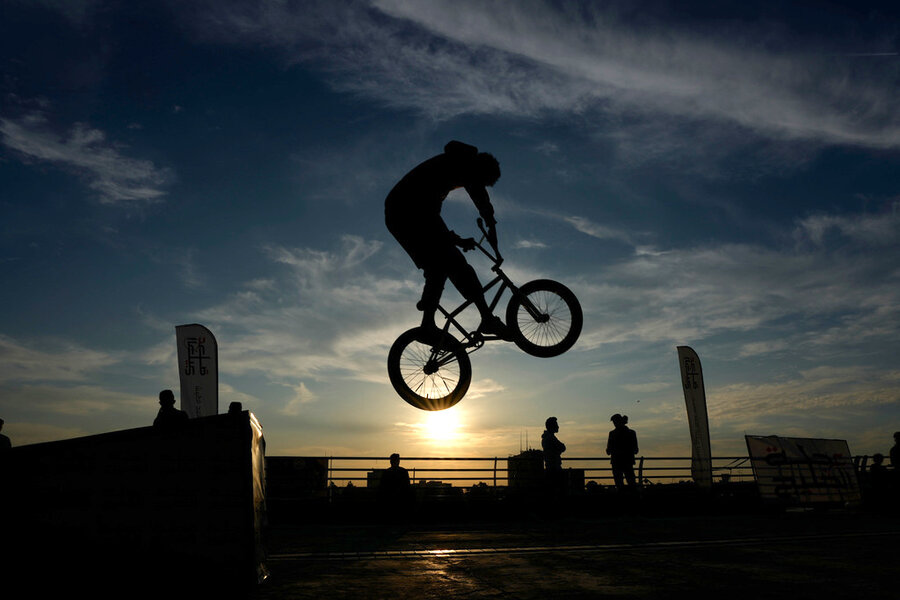What young Iraqis have wrought
Loading...
Iraq ranks as the fifth-most vulnerable country to global warming. About 70% of its young people live in poverty. And both Iran and the United States have lately launched attacks against militants in Iraq, reaffirming its history as a place for others to settle scores.
So amid these giant forces, what is the main concern of Iraq’s leader? “Corruption remains ... the greatest threat to Iraq’s future development,” wrote Prime Minister Mohammad Shia al-Sudani in The Guardian in late 2023.
In fact, last month when the government celebrated the sixth anniversary of the victory over the terrorist group Islamic State – which took over a third of the country in 2014 – many Iraqis expressed hope for a greater victory.
“God willing, we will celebrate the victory day when we conquer your corruption,” wrote one Iraqi, Fadel Sharba, on social media.
Mr. Sudani knows well why corruption is the top priority. He came to power in 2022 after two years of mass protests by young people demanding clean governance in one of the region’s rare democracies. Even today, thousands of university graduates, unable to find jobs, often take to the streets. Many of the prime minister’s reforms are targeted at youth, who make up 60% of Iraq’s 43 million people. He has invited them to join in the anti-corruption drive through a campaign called #PasstheBaton.
Driven by these yearnings for honest and accountable leaders, Iraq is enjoying an unusual period of political stability, 21 years after a U.S. invasion toppled a dictator.
“Some Iraqi leaders can be successful in upholding the law and constitution, in driving agreement, and in getting things done,” wrote James Watt, a former British ambassador in the Middle East, in Devex, a news site on global development. “I see a country at peace with itself, hungry to rebuild.”
The government’s reforms have resulted in a record $24 billion in foreign direct investment last year and a record number of infrastructure projects. The number of hours of reliable electricity rose to 20 hours a day last year, up from 13 the year before. In ensuring nobody is above the law, “Iraq has come a long way in recent years,” declared Human Rights Watch this month.
The prime minister describes Iraq’s current situation this way: “We find ourselves in a far more harmonious situation than at any other time in the last three generations.” A big reason for that harmony has been the upwelling for integrity in governance among young Iraqis, reflecting their values of civic equality and freedom born of Iraq’s long experience of adversity.







